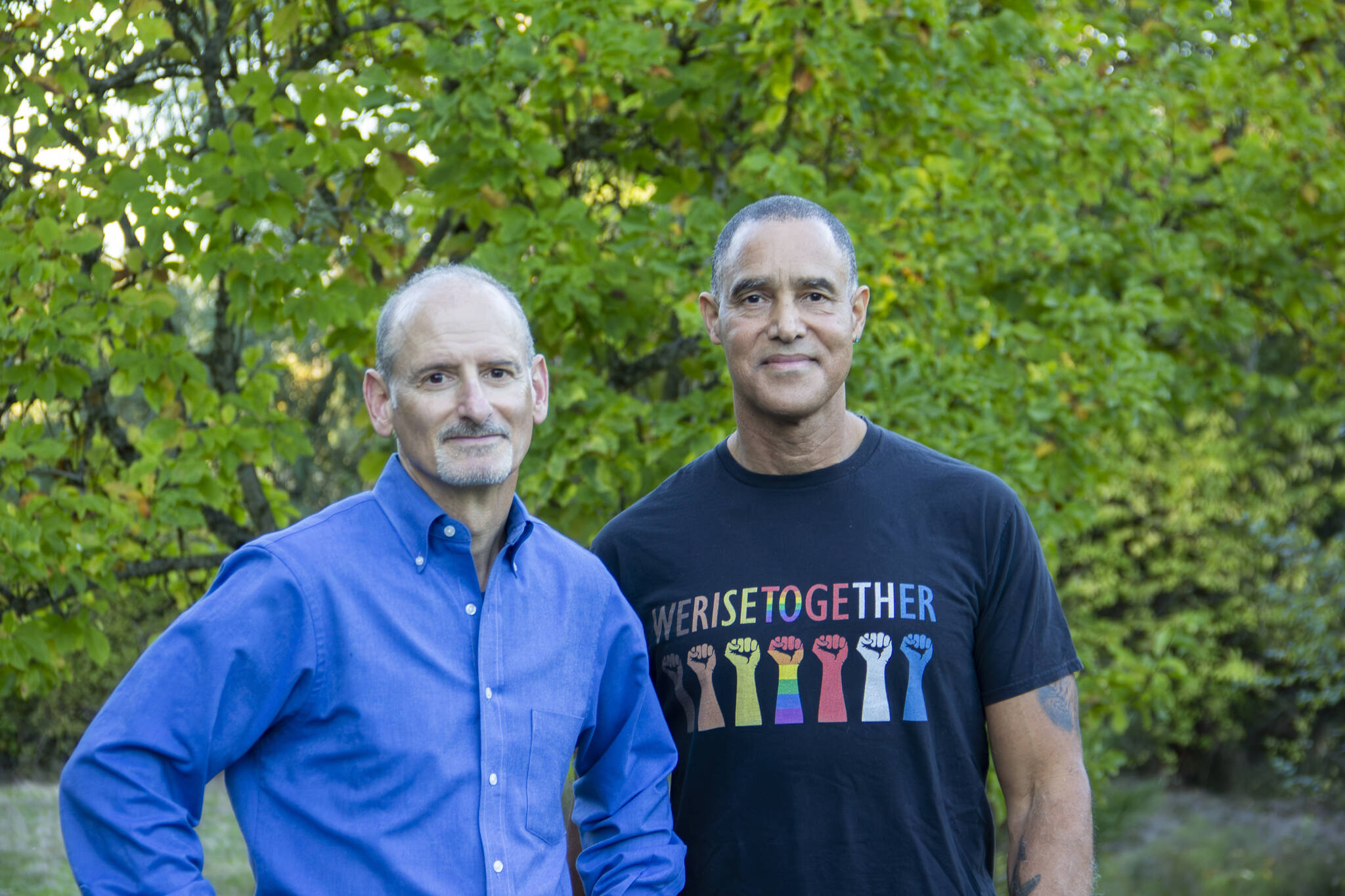By Annika Hauer
Special to the Reporter
In May, Jonathan Stutz and Eddie Pate released “Daily Practices of Inclusive Leaders: A Guide to Building a Culture of Belonging.” The book focuses on the idea that changing your company’s culture comes through small, regular acts of justice (coined “inclusive pebbles”).
If in a meeting a woman in the room is interrupted — women are interrupted much more frequently than men, Stutz said — and a person says, ‘hold on a second, she wasn’t done speaking,’ Stutz and Pate call this dropping an inclusive pebble.
“The ripple becomes a wave in changing the culture, so that you create the bigger change, and it’s all those pebbles that accumulate,” Stutz said. “A lot of people think doing this work is like two or three big things, added to people’s already busy, full plates. But it’s not. It’s just doing all the little things.”
Stutz was born in Toronto, Canada, one of the most diverse cities in the world, then had his childhood in Atlanta during the Civil Rights Movement, where he experienced antisemitism from a young age and witnessed racism toward others. He then lived on Mercer Island from the age of 10-18.
“It was really that experience in Atlanta as a kid and my parents’ values,” Stutz said, that shaped how he came to understand his experiences of discrimination and thus his moral compass regarding racial justice. Stutz is Jewish, and his parents raised him with open-mindedness and the Jewish value of Tikkun Olam — having the responsibility to leave the world better than one arrived in it. Stutz lived in Bellevue for 20 years and has now lived in Kirkland for 10.
“Daily Practices of Inclusive Leaders’” biggest takeaway is fostering moments of inclusivity on the daily, and additionally dives into more specific ways to “drop pebbles” along the employee lifecycle, from recruiting to talent development to promotions, so a manager can flip through it like a resource guide.
“This isn’t just a book for Black and brown folks,” Stutz said. “The majority of organizations still to this day are led by white men. So white men are key to creating cultural belonging and to leading in a way which helps everybody feel that they’re important and that they belong in that organization. And they [leaders] benefit, for sure, because when the organization’s successful, who gets the promotion, who gets the raise, who gets the opportunity? Because all boats lift in a rising tide.”
Also, the book includes Eddie Pate’s seven insights into inclusive leadership that he developed during his 25-year career, which take understanding inequities to real-life application and action.
“It’s one thing to think about Inclusive Leadership; it’s another thing to do it,” the book reads in Chapter 2 after introducing the seven insights. “And the only way to get good at it is to do it every day — hence the importance of daily practices.”
The book is built from over 50 combined years of professional experience between the two writers in leading Diversity, Equity and Inclusion teams at companies like Amazon, Microsoft, Starbucks, and Zulily. Each author has also founded and is leading their own companies regarding diversity and racial justice.
Stutz is white, male, and Jewish.
“I faced discrimination, but also had a lot of privilege, power, and status in my career, given opportunities,” Stutz said.
Pate, whose dad served in the military and came from Tennessee while his mom is from Germany, comes from a culturally mixed family. Stutz and Pate’s different ideas, writing styles, experiences, and perspectives both balanced the book and gave it a tension that made for a great work, Stutz said.
“Daily Practices of Inclusive Leaders” has been out for just over two months, and promotion for it has included being guests on podcasts, a TikTok account called inclusive.pebbles, and book launches at BookTree in Kirkland, Island Books in Mercer Island, and Third Place Books near Lake Forest Park. On Aug. 15, the authors will also be on New Day Northwest, hosted by King 5.
“Now this is a legacy,” Stutz said. “We’re handing off what we know, what we’ve learned all these years, to people doing the work today and people in the future who could pick up this book and gain from it.”


